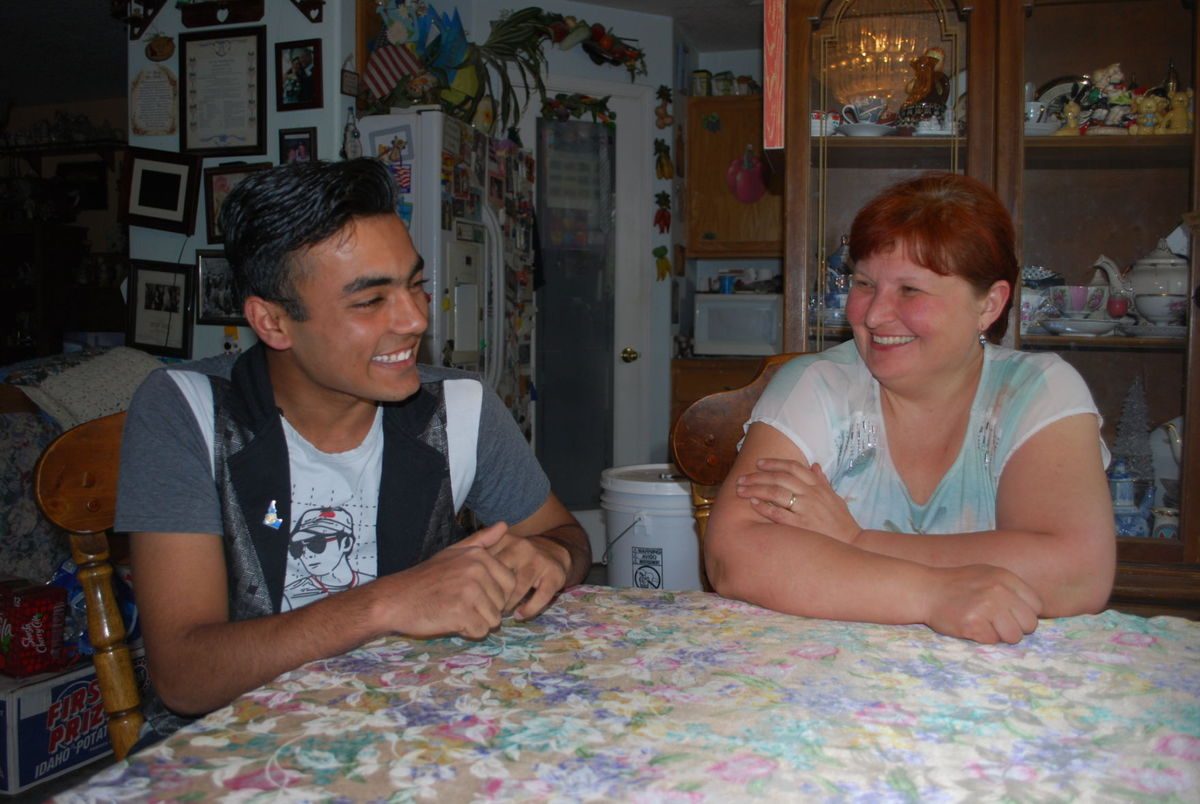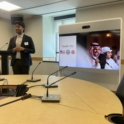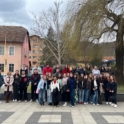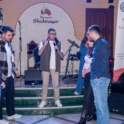Abdulaziz reflects on the highlights from serving as a mentor for CEW.
STORIES
Muslim & Mormon: Bridging Cultural Gaps

This article was written by Holly Beech and originally published by Meridian Press
A yard sign of the Ten Commandments sits outside the house where 16-year-old Baber Ali Zergham (YES 2015-2016, Pakistan, placed with ASSE in Boise, ID), an exchange student from Pakistan, lives with his host family.
The difference in religions — a Muslim student living with a Mormon family — hasn't been an issue.
“Frankly, we didn't even think about it,” Zergham's host mom, Elena Hubert, said.
Zergham raves about the year he's spent at Mountain View High School in Meridian. He's addressed his peers' curiosity and ignorant questions with good humor.
“No, we don't all ride camels,” he responds. “Yes, we have a McDonald's.”
Zergham is the first Muslim exchange student that Stacy Taylor, a Meridian volunteer with ASSE International Student Exchange Programs, has been able to place in the Treasure Valley. Taylor said she's been trying to bring in a student from a Muslim country, but out of the 13 students she has placed in the past four years, only one has been Muslim.
“It's hard to say exactly what that reason was, but I did have people host Chinese exchange students in the meantime,” Taylor said. “I don't know if it's just because people have fear, or we were coming out of the recession.”
Rhetoric about Muslims is a prominent theme nationally and locally: the reports about terrorist attacks carried out in the name of Islam; the rising apprehension about Muslim refugees coming to Idaho; and the Republican presidential front-runner, Donald Trump, calling for a ban on Muslims entering the U.S.
Though Zergham said most of his interactions with Americans have been positive, the rhetoric still stings.
“Some people (are) saying that Muslims are really the group of people that are bad and that are just killing people for fun,” Zergham said. “It hurts to listen (to) that, to listen about your own religion and country.”
In U.S. history class, Zergham learned about white supremacy and slavery and the Civil Rights Movement. But as America seeks to heal that racial divide, another prejudice is taking root, he said.
“Now the new thing is — I'm facing here with some people — is Islamophobia,” Zergham said.
He's encountered people, he said, who associate all Muslims with terrorist groups.
“I just told them that, first of all, terrorism has no religion,” Zergham said. “You cannot judge the population of Muslims all over the world by just (extremists). It's not wise.”
Students' questions have opened the door for Zergham to educate them about a culture they have little exposure to. Zergham has been overjoyed to share interesting facts about Pakistan — did you know more than half of the world's soccer balls are produced there? — and show pictures of the beautiful mountain ranges, which most students guess are in Idaho or Montana.
“When I gave presentations about my country, at the end they said, will you take us back in your bag?” Zergham said with a huge smile.
He, too, has had to let go of judgments about a culture different from his own. Less than 1 percent of the population in the U.S. is Muslim, compared with more than 96 percent in Pakistan. Experiences like seeing women without scarves on was a shock for Zergham at first, but he tried to keep an open mind.
Though it made him nervous, he decided to go to a church for the first time with his host family, who are members of The Church of Jesus Christ of Latter-day Saints. He discovered a welcoming group of people who, though they had different spiritual beliefs, reminded him of his fellow worshipers at a mosque, he said.
“I was like, wait, that's just the same,” Zergham said. “People respect each other, people care about each other, people love each other. That's the same.”
Hubert said she was happy with Zergham's reaction, but not surprised.
“I believe that every religion is pretty much about love and understanding, and just people are the ones who twist it,” she said.
Elena and her husband, Dan, helped Zergham find a mosque in Boise where he could gather with other Muslims to celebrate Eid al-Adha, an important Muslim holiday.
“It was so amazing to see all of the Muslims together. Some of the people were from my country, too, so I also met them and I spoke in my language,” he said. “It feels like you are in a place of your own.”
Zergham saw his host family's help finding a mosque as a sign of how much they cared about him.
“They hosted me. They could have said, no, he is a Muslim, he could be harmful to us … but they hosted me,” he said.
Elena, who grew up in Eastern Europe, said she hosts exchange students to help break stereotypes.
"It's the same people, with the same two eyes, the same two hands, the same blood, the same voices, the same problems," she said. "If at least 10 people that (Ali) knows change their mind towards religious problems, then we did what we're supposed to do."
Just as he helped bring cultural understanding to the U.S, Zergham said he hopes to do the same in Pakistan when he returns next month.





